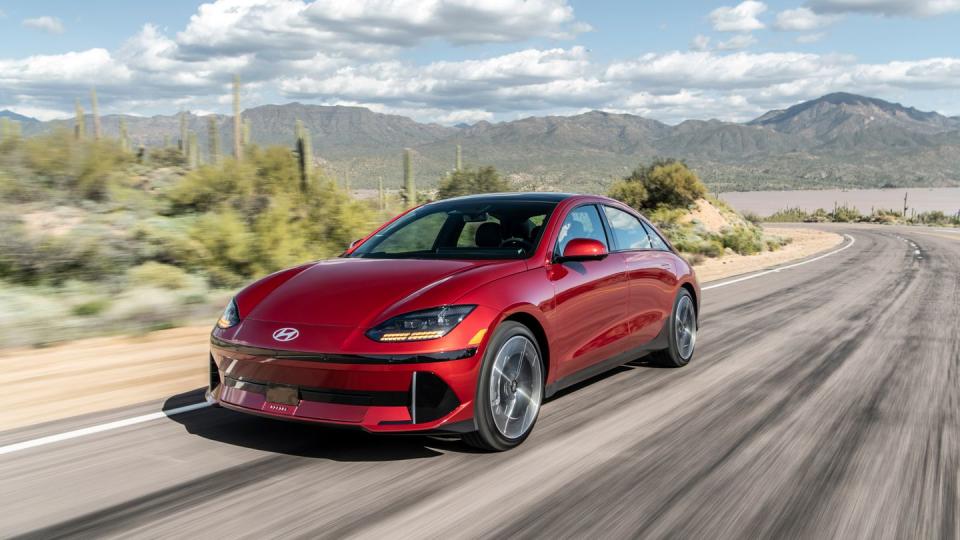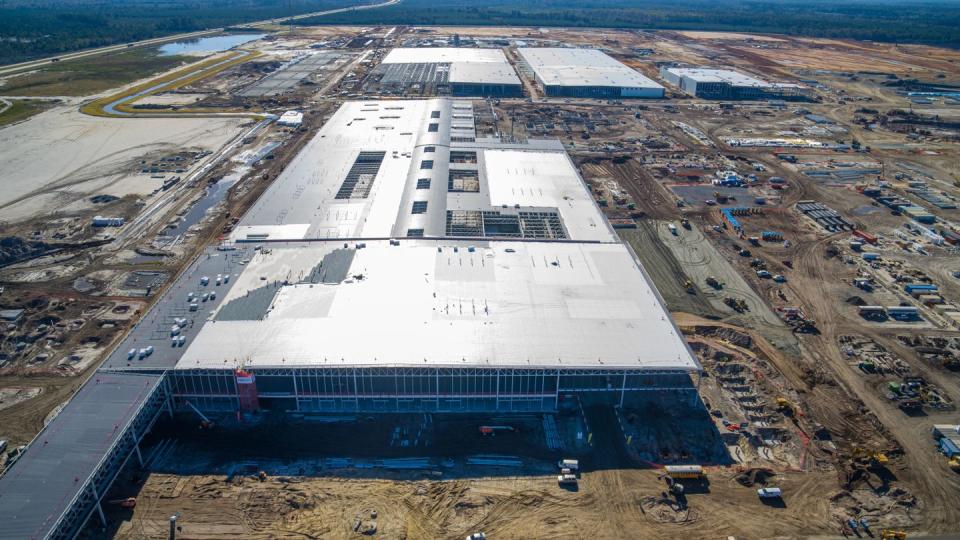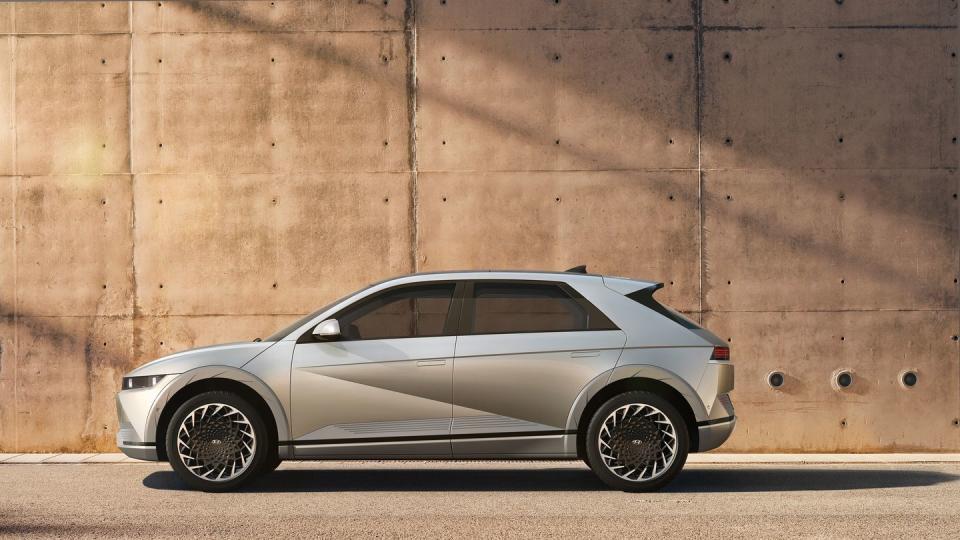While Others Pull Back, Hyundai's EV Empire Plows Ahead

Amid industry turmoil surrounding EV demand, Hyundai is pushing forward with its EV production plans, domestically and overseas.
Marking the one-year anniversary of breaking ground on its Georgia Metaplant, Hyundai says it's on track to begin domestic EV production by 2025.
The Middle East is set to become an important market for Hyundai, entering a joint venture with Saudi Arabia's Public Investment Fund to build an EV and ICE production facility.
Automakers and analysts alike are raising a white flag of sorts lately. General Motors delays flagship electric products and decries EV demand as waning while Wall Street number crunchers and industry internals nod along in unison. Yes, it is possible that EV demand could plateau in the near future, but Hyundai certainly isn't acting accordingly.
Rather, the Korean automaker is continuing on full steam ahead, as it marks one year since breaking ground on its Savannah, Georgia, Metaplant. With over 2900 acres of land purchased to the tune of $5.5 billion, the ceremonious groundbreaking was the first of many big steps in Hyundai's mission for electric-vehicle market dominance.

The Chatham County facility is slated to be Hyundai's American EV headquarters, with the capacity to produce batteries and vehicles simultaneously.
Hyundai has yet to establish a specific annual energy creation goal, though the automaker is legally tied to employing around 8100 workers and maintaining a phase-one production capacity of 300,000 vehicles.
The facility will be able to ramp up to an annual rate of 500,000 units, though the road to this level of production prowess is long and arduous.
Hyundai executives say everything is running on schedule. With approximately 2000 construction workers on site, 99.9% of all foundation work and 81% of steel framing are complete as of October.
"The site is advancing every day as we work diligently to complete what will be one of the most advanced vehicle assembly and battery plants in the world," said Oscar Kwon, CEO of HMGMA. "We are on track to start production in early 2025, or as my colleague José Muñoz likes to say, 'if not sooner.'"
The US market is not the only market that Hyundai is focused on though. Earlier this week, Hyundai announced a new joint venture with Saudi Arabia's sovereign wealth fund, aimed at building an EV and ICE vehicle production facility in the Middle East. This would be the first South Korean auto factory in the Middle East, Hyundai said.
With a projected annual production of 50,000 units, it's certainly not as impressive as the upcoming US facility, though the Middle East market is a newer one for Hyundai.
Saudi Arabia's Public Investment Fund will hold a 70% ownership stake in the plant, with Hyundai retaining the remaining 30%, amounting to an investment value above $500 million.
This joint venture isn't particularly surprising, in light of Saudi Arabia's Vision 2030 economic and environmental initiative.

Focused on moving its economy toward more renewable energy, Saudi officials have been increasingly touting EV investments. Notably, the Kingdom will mandate 30% electrified new car sales by 2030.
Hyundai has grown significantly in the past few years, grabbing another percentage point of US market share in 2022. That's a total of 5.2% US market share in 2022, not including fellow Hyundai Motors' brands Kia and Genesis, according to Automotive News. Growth also occurred in Europe, as Hyundai accounted for 4.6% of European sales in 2022.
Adding another lucrative market to the mix will fortify Hyundai's global reach, particularly as production is locally subsidized. Lacking consumer incentives for EV ownership could challenge sales, however. Additionally, Hyundai will have to compete with the likes of Lucid and Saudi-domestic EV manufacturer Creer.
Paired with South Korea and China, Hyundai's primary focus market for EVs is the US, and Hyundai Motor North America CEO José Muñoz is not shy about saying so. Addressing journalists at the Metaplant groundbreaking in Georgia last year, Muñoz noted Hyundai's primary focus would be meeting demand, particularly in the US.

Instead of lying in wait like GM, Hyundai is opting to push through the alleged EV sales slowdown, seemingly banking on down-the-road EV profits through economies of scale. By manufacturing US-sold EVs domestically, Hyundai also hopes to lower costs for consumers, primarily through federal tax credit incentives and streamlined supply chains.
It's too late for Hyundai to back away from its billions in EV infrastructure investments at this point, but that doesn't mean it's doomed, either. Pushing through could pay off for Hyundai in the long run, especially if it can drop prices before other domestic manufacturers.
"Affordable pricing is crucial for widespread EV adoption, as most EVs remain out of reach for many buyers," explained Paul Waatti, Manager of Industry Analysis at AutoPacific. "Automakers must reduce EV prices through economies of scale or by absorbing substantial losses—and almost all EVs are sold at a loss already—to drive mainstream adoption."
Do you live in a state with an all-EV-sales-by date? If so, do you plan on getting an EV? When? Please share your thoughts below.

 Yahoo Autos
Yahoo Autos 